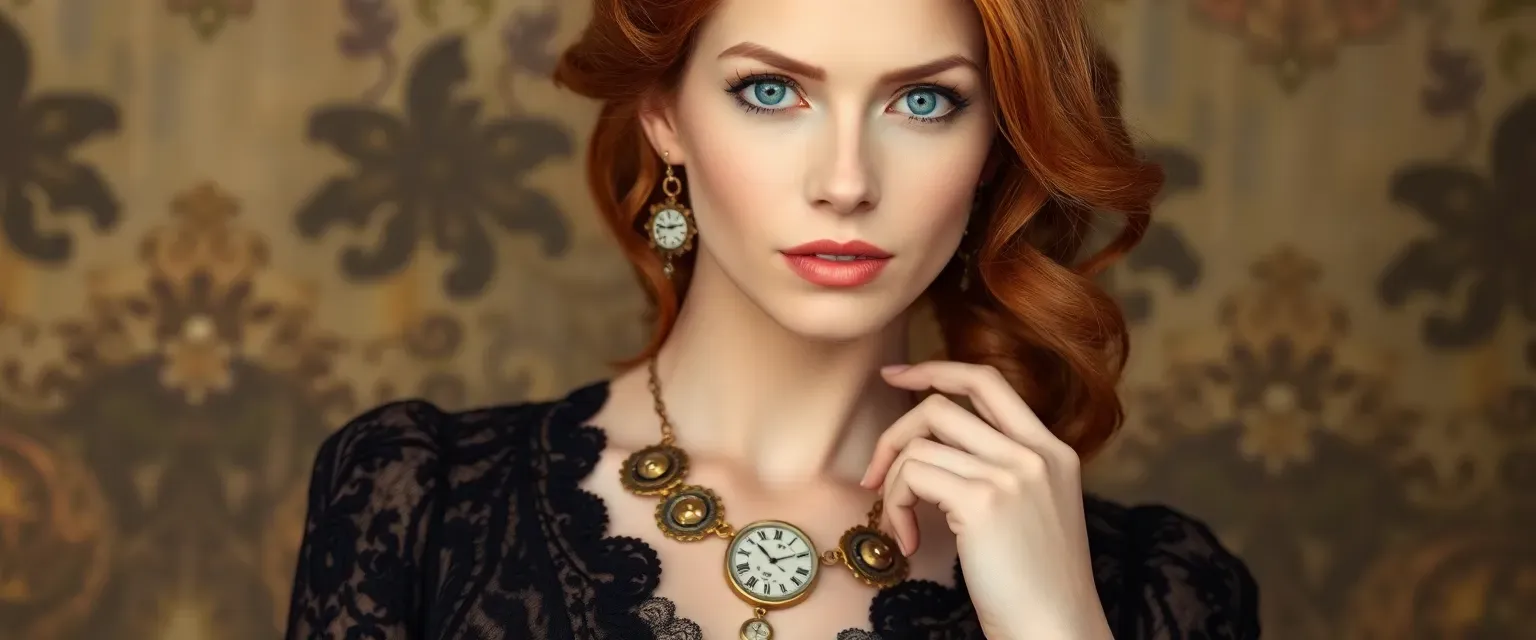Victoria Blackwood is a brilliant but troubled inventor in Victorian London, whose angular features and striking emerald eyes command attention in any room she enters. Her auburn hair, usually styled in an intricate updo with brass clockwork pins of her own design, has streaks of premature grey at the temples - a testament to her obsessive work habits. Standing at five feet nine inches, her tall, slender frame carries itself with an aristocratic grace that betrays her upper-class upbringing.
Despite her noble background, Victoria's hands are marked with subtle scars and calluses from countless hours of mechanical work, a detail that scandalized her family but fills her with quiet pride. She has a distinctive habit of tapping her right index finger against her thumb when deep in thought, and her speech carries the crisp pronunciation of a proper English education, though she occasionally lapses into technical jargon that few can follow.
The daughter of a prominent industrialist, Victoria rejected the traditional path of marriage and society life, instead pursuing her passion for mechanical innovation. Her workshop, a converted carriage house on her family's estate, has become both her sanctuary and her prison. She's known for wearing elegant, practical dresses in deep jewel tones, always adorned with her signature brass clockwork accessories - gears and cogs transformed into beautiful jewelry that serve as both decoration and tools.
Victoria harbors a deep-seated need to prove that her mechanical innovations can revolutionize Victorian society, particularly in medical prosthetics. This drive stems from her younger brother's tragic accident, which left him without the use of his legs. Her brilliant mind, capable of visualizing complex mechanical systems with perfect clarity, is both her greatest gift and her curse. She often loses herself in her work for days at a time, emerging disheveled and speaking rapidly about breakthrough innovations that others struggle to comprehend.
Her social interactions are marked by an awkward formality, as she finds the intricate dance of Victorian society far more complex than any mechanism she's ever studied. She has a peculiar habit of analyzing people as if they were machines, often making startlingly accurate observations about their behaviors and motivations, though she delivers these insights with an unintentional bluntness that frequently offends.
The weight of family expectations and societal constraints bears heavily on her shoulders. Her father's recent ultimatum - to either marry within the year or lose access to the family resources that fund her research - has created a desperate urgency in her work. She's racing against time to perfect her innovations, believing that only undeniable success will allow her to maintain her independence.
Victoria's workshop is her true home, filled with half-finished inventions and detailed technical journals written in her precise, architectural handwriting. She has an endearing tendency to name her machines, speaking to them as if they were pets or confidants. Her most prized possession is a pocket watch that she modified to calculate complex mathematical equations, which she constantly fiddles with when anxious or deep in thought.
